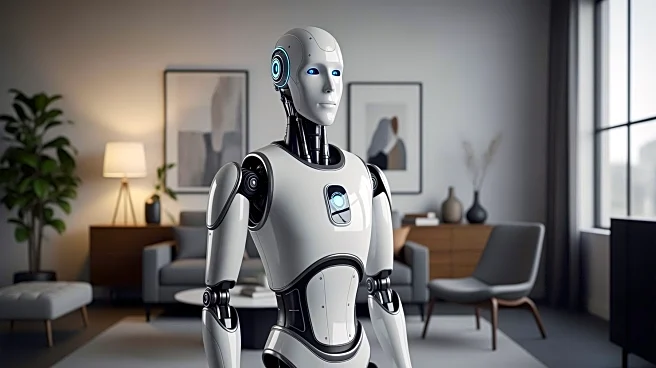What's Happening?
1X Technologies has introduced Neo, a humanoid robot designed to perform household tasks, signaling a shift in automation's impact on blue-collar jobs. Priced at $20,000, Neo is available for pre-order with delivery expected in 2026. The robot, controlled
remotely by operators using VR headsets, can perform tasks like loading dishwashers and folding laundry, although it currently struggles with more complex tasks. The company plans for Neo to operate autonomously by 2026, using data from human-guided sessions to improve its capabilities. This development comes amid rising unemployment rates among recent college graduates and a growing interest in blue-collar careers among Gen Z as a safeguard against automation.
Why It's Important?
The introduction of Neo highlights the increasing role of automation in traditionally manual jobs, raising concerns about job security for blue-collar workers. As robots like Neo become more capable, they could replace human workers in roles such as housekeeping, potentially leading to job displacement. However, automation also presents opportunities for new job creation in technology and maintenance sectors. The trend reflects broader economic shifts as industries adapt to technological advancements, impacting employment patterns and requiring workers to acquire new skills.
What's Next?
As Neo becomes more autonomous, the demand for skilled operators and maintenance personnel may increase, creating new job opportunities. However, the potential for job displacement in the housekeeping sector could lead to increased competition for remaining positions. Policymakers and industry leaders may need to address the implications of automation on employment, possibly through retraining programs and support for affected workers. The continued development of Neo and similar technologies will likely influence the future landscape of blue-collar work.
Beyond the Headlines
The rise of household robots like Neo raises ethical and privacy concerns, as their presence in homes could lead to data security issues and changes in domestic life dynamics. The integration of AI in everyday tasks also prompts discussions about the balance between convenience and privacy, as well as the societal implications of relying on machines for personal services.















